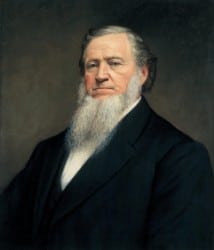
“Six days is a mere term, but it matters not whether it took six days, six months, six years, or six thousand years. The creation occupied certain periods of time. We are not authorized to say what the duration of these days was, whether Moses penned these words as we have them, or whether the translators of the Bible have given the words their intended meaning. However, God created the world. God brought forth material out of which he formed this little terra firma upon which we roam. How long had this material been in existence? Forever and forever, in some shape, in some condition.”
| Discourses of Brigham Young, sel. John A. Widtsoe, p. 100